
Rebel’s Takeover Syria, Assad on the Run
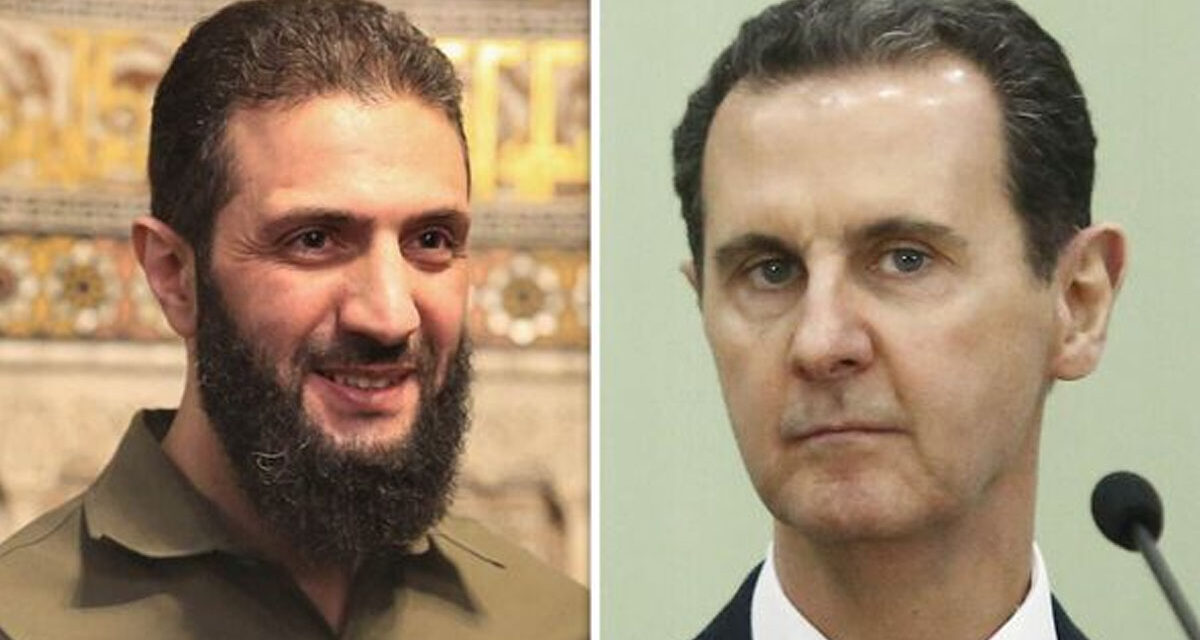
Syrian rebel forces have toppled President Bashar al-Assad, ending over five decades of his family’s rule. The rebels’ lightning advance into Damascus marked the culmination of a brutal 13-year civil war that had left Syria in ruins. This sudden and dramatic shift has far-reaching implications not only for Syria but also for the regional balance of power, involving key players like Iran, Russia, and Turkey.
The Collapse of Assad’s Regime
On December 8, 2024, Damascus fell to rebel forces led by Hayat Tahrir al-Sham (HTS). In an operation that shocked the world, the rebels encountered no resistance as they entered the capital. Assad’s government, which had maintained one of the harshest police states in the Middle East, disintegrated overnight. Former prisoners, some held for decades, poured into the streets after rebels broke open their cells. “We toppled the regime!” one prisoner shouted, skipping in joy through the Damascus streets. Families reunited amid tears and disbelief, celebrating what many thought was an unattainable victory.
The Al-Rawda Presidential Palace, once a symbol of Assad’s power, became a public spectacle as citizens wandered its halls, some even removing furniture. Rebel commander Abu Mohammad al-Jolani declared to a massive crowd at the historic Umayyad Mosque, “A new history, my brothers, is being written in the entire region after this great victory.” He promised that the rebels would build “a beacon for the Islamic nation” while emphasizing the hard work needed to create a new Syria.
The Rebels: From Jihadists to Rulers
The leading force behind Assad’s ouster, Hayat Tahrir al-Sham, has undergone a significant transformation over the years. Originally founded as the Nusra Front, an affiliate of Al Qaeda, the group later rebranded itself, breaking ties with global jihadist movements to focus on governing Syria. Under Abu Mohammad al-Jolani’s leadership, HTS evolved into a pragmatic and disciplined organization. It established a functional administration in areas it controlled, collecting taxes, providing limited public services, and even issuing identity cards to residents.
However, HTS’s past still raises concerns. Once one of the rebellion’s most extremist factions, the group has worked to moderate its image. In his victory speech, Jolani called for restraint and order, instructing rebel forces not to damage state institutions. “It is strictly forbidden to approach public institutions,” he wrote on Telegram, demonstrating a commitment to preserving Syria’s infrastructure. Jolani’s leadership now faces its greatest test: uniting Syrians under a government that balances its Islamist principles with the need for inclusivity.
A Timeline of the Rebellion
The Syrian civil war, which began in 2011 as an uprising against Assad’s authoritarian rule, has been marked by devastating violence and shifting alliances. Key events include:
- 2011: Nationwide protests against Assad’s rule escalate into a civil war after government forces respond with violence.
- 2013-2016: With support from Russia and Iran, Assad’s forces regain significant territory.
- 2017: HTS consolidates power in northern Syria, breaking ties with Al Qaeda.
- 2020: A ceasefire, brokered by Russia and Turkey, freezes much of the conflict.
- 2024: HTS launches a rapid offensive, capturing Aleppo, Hama, and finally Damascus.
What’s Next for Syria?
The rebels’ victory marks the beginning of a new, uncertain chapter for Syria. HTS has pledged to create a government inspired by Islamic principles while maintaining inclusivity for Syria’s diverse population. “The great Syrian revolution has moved from the stage of struggle to overthrow the Assad regime to the struggle to build a Syria together that befits the sacrifices of its people,” said a statement from the rebel coalition. HTS has vowed to avoid the chaos seen in other regime changes, preserving public institutions and ensuring stability.
Mohammad Ghazi al-Jalali, Assad’s prime minister, has called for free elections and is in talks with HTS leaders to manage the transition. Despite these promises, rebuilding Syria will be a monumental task. The country’s infrastructure has been decimated, its economy hollowed out by sanctions, and millions of its citizens remain displaced.
Regional and Global Reactions
The fall of Assad’s government has reshaped the regional balance of power, drawing mixed reactions from key players:
- Iran: Assad’s defeat is a severe blow to Tehran’s influence in the region. The Rebels have overrun the embassy, no love lost there. The loss limits Iran’s ability to support allies like Hezbollah and Hamas, both of which have suffered heavy losses in recent conflicts. Iran’s foreign ministry issued a cautious statement, asserting that Syria’s future should be determined by its people without foreign interference.
- Russia: Russia, a key ally that helped Assad recapture much of Syria, now faces significant strategic losses, including the potential closure of its naval base in Tartus. Moscow’s distraction with its war in Ukraine likely contributed to its inability to support Assad in his final days.
- Turkey: As a long-time backer of Syrian rebels, Turkey played a crucial role in HTS’s resurgence. Analysts suggest Turkey encouraged the offensive as a means of negotiating refugee returns and securing its border interests.
- Israel: Israeli Prime Minister Benjamin Netanyahu called Assad’s fall a victory for efforts to weaken Iran. However, Israel remains wary of the rebels’ Islamist roots and has moved troops into the buffer zone in the Golan Heights and taken over Syrian outposts. “We will not allow any hostile force to establish itself on our border,” Netanyahu said.
- Western Nations: French President Emmanuel Macron praised the end of Assad’s “barbaric state,” while the U.S. has maintained a cautious stance, closely monitoring developments. President Joe Biden’s administration has not yet adjusted the positioning of U.S. troops stationed in northern Syria.
For Syrians, the end of Assad’s rule brings hope but also immense challenges. The country’s new leaders must navigate sectarian divides, rebuild devastated cities, and create economic opportunities for millions of displaced citizens. International aid will be critical, but HTS’s Islamist roots may complicate relations with Western nations.
“The future is ours,” Jolani proclaimed, but turning that vision into reality will require unity, resources, and diplomacy. The rebels must balance their conservative ideology with the practical needs of governance, a task that will define Syria’s future and its role in the Middle East.
PBP Editor: A number of questions remain.
- Was the U.S. involved in this in any way? Israel? Turkey? Most likely the CIA has some tentacles into this, but they are not talking. I would assume that the 900 person U.S. “presence” has its CIA contingent and the covert actions in this situation were designed for exactly this outcome – or perhaps their operations were in support of a totally different outcome and we have lost to Russia and China. Assad was a bastard, but is Jolani any better?
- Why did Russia, Iran and China not prevent this? I suspect that Russia and China are not as unhappy as the media would characterize them. We don’t know the nature of the rift, but perhaps Assad was not willing to commit Syria to more radical moves on the world stage. Apparently some of the support was withdrawn, allowing the rebels to advance. We will not know that agenda for quite some time.
- What are the intentions of the rebels? A lot depends on who supported them in getting into power. Remember that Jolani is a former al Quaeda operative, who broke ties with them in 2017. Since then he has built a disciplined and pragmatic organization. From his background, one might think he would implement a radical authoritarian Muslim government. And yet, they are talking about elections at this point. It could also be that Russia and China already have an accommodation with Jolani, in which case terrorist and anti-U.S. operations in the region will surge dramatically.
Speculation on my part, while the CIA is certainly capable of influencing events, they are constrained by the resources provided, which is dictated by the elected administration that they serve. Given the demonstrated incompetence of the Biden Administration in foreign policy (notably Afghanistan, North Korea, Israel, and other issues), I am doubting the U.S. had significant influence here. The more I think about it, the more I think China and Russia (and to a lesser extent, Iran) have orchestrated something.
A final comment, back in the old days, when I was in the intelligence world, the CIA was proscribed from doing assassinations. This was not for some moral reason, or to maintain any kind of diplomatic integrity. The reason was purely pragmatic. Whenever you take out a leader, no matter how evil, radical or sadistic, the vacuum is always filled by someone even more evil, radical and sadistic, who is waiting in the wings.
Always.
I’m starting to feel a bit sick to my stomach. Thanks Joe…


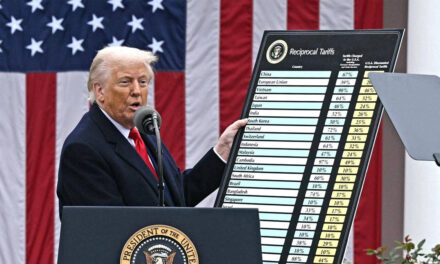
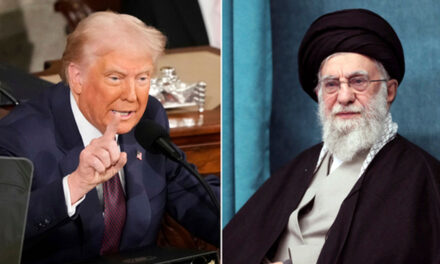

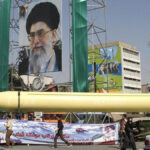










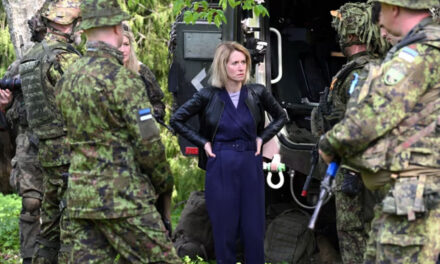

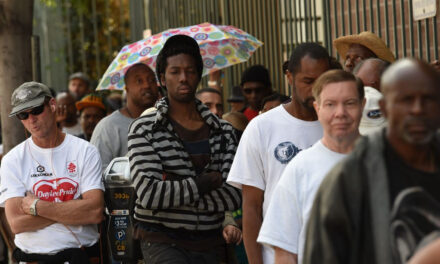







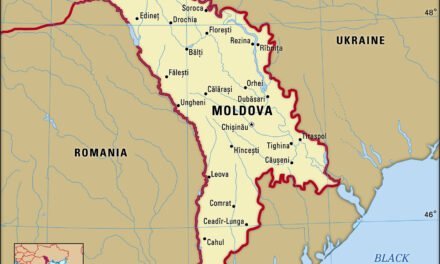

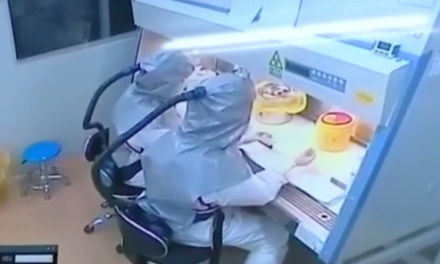
Band on the run, man on the run.
Wonder what really happened here. Probably recognizing Russia’s preoccupation with Ukraine has something to do with it. Iran is a little busy right now too, whether supplying Russia or watching out for those pesky Jews. And yes, I can see us providing intel at least. Israel too, after all, they are already taking land in Syria and promise to give it back when the dust settles, wink, wink, nudge, nudge. I thing Temple Beth Syria is the newest settlement…. But they had to move hard and fast to catch Russia and Iran sleeping.
Now Assad is with Trump’s buddy Putin, if KIm gets there they can have four strongmen together for a little bridge.
Question is who’s next in Russia’s sphere of influence to bolt from under their bootheel? Never gonna be a better time to rebel.
I’m pretty sure all of these guys can walk and chew gum at the same time. I see this as a new strategy. As I mentioned, I’m doubting that the U.S. had substantial influence here because of the massive incompetence shown by the Biden Administration. Which means that this is someone else’s strategy. Israel is taking advantage because they have to, but they are not pulling the strings.
Tulsi Gabbard. She’s been doing Assad and Putin for years!
Perhaps. But Biden basically has the same guys as previous working the issue. He just says yea or nea. Sorry, this win is on his watch.
Certain of the intelligence sharing.
I agree Frank! Biden’s long term plan to grind down Iran and Russia is working! Three cheers for Biden!
Tom I would call you an idiot but that’s too nice. But look who’s back. So you should give Trump three cheers to celebrate his return. We, at least for now, aren’t going to fall into communism
Wait, did JG just say these guys can multitask? Wasn’t he wondering whether Biden could walk or talk?
Glad Assad is gone from Syria. Maybe Tulsi Gabbard will be next! 🙂 I can’t wait to see what Dems dig up on Tulsi in the Syrian palace records!